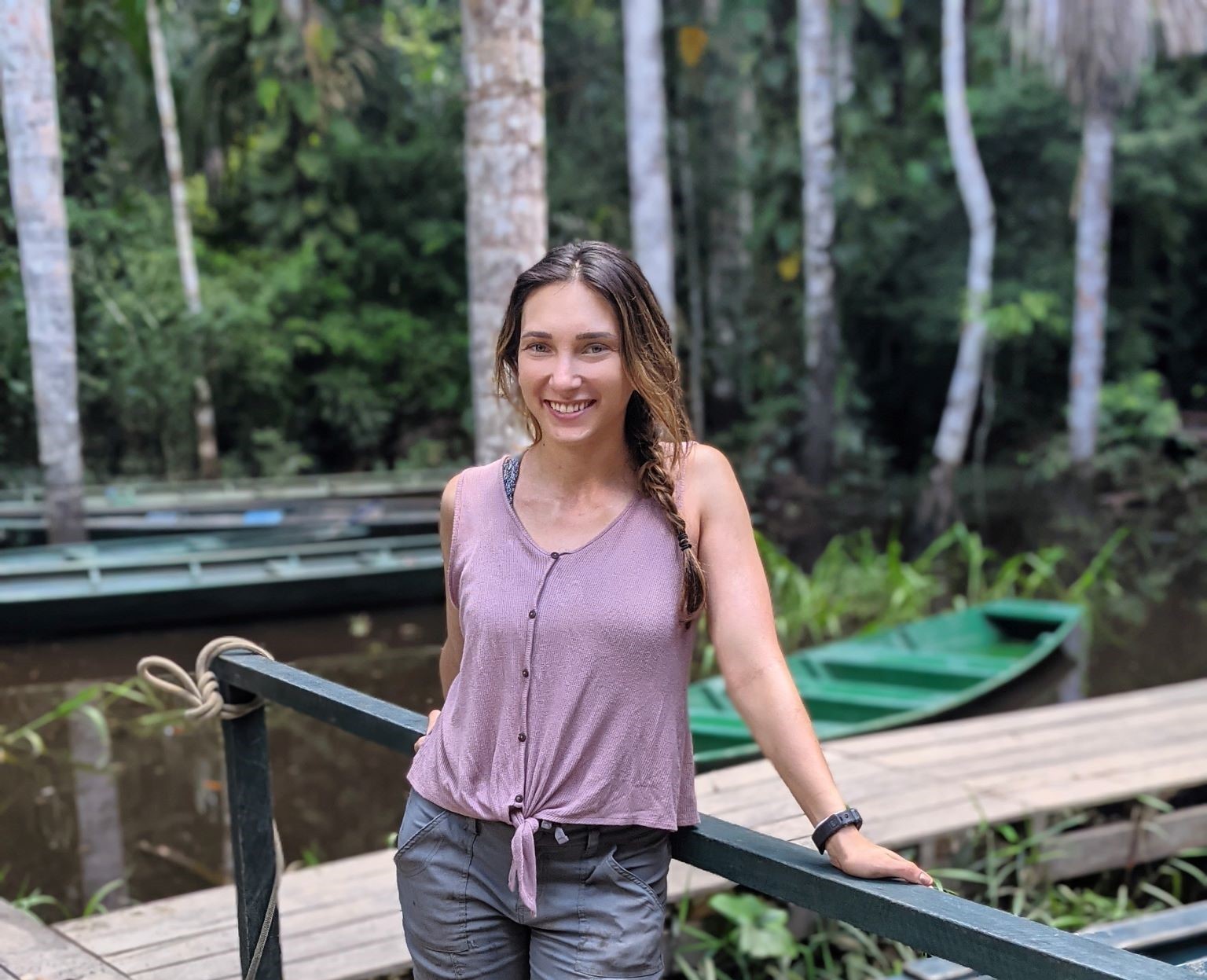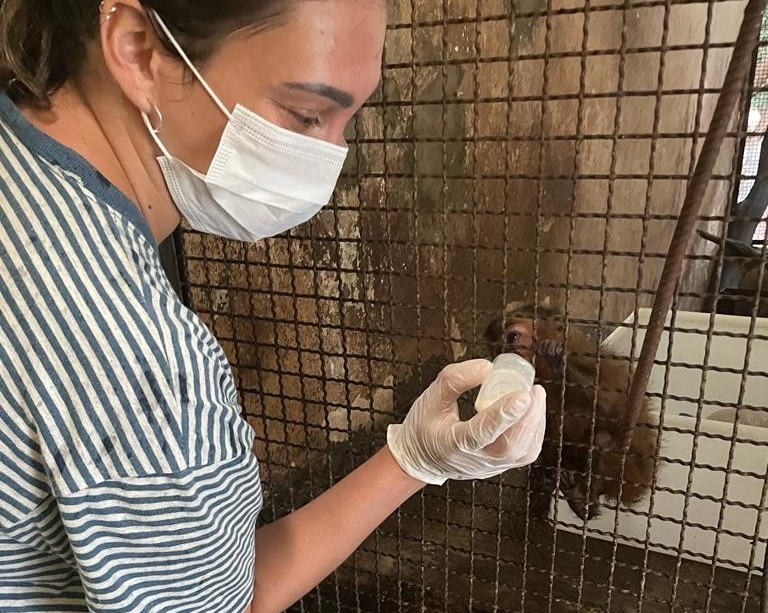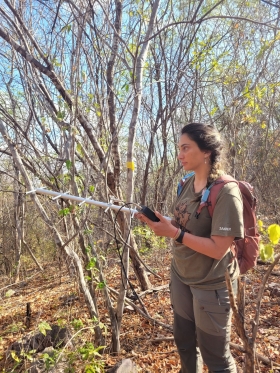Born in Calgary, Alberta, Mikaela Gerwing first studied in California, Chicago, British Columbia and New York before coming to Concordia’s Faculty of Arts and Science to do her PhD in the department of Geography, Planning and Environment. A theater artist turned scientist, Gerwing discovered her passion in reintroduction of wildlife during her working and volunteering stints in Cameroon, Thailand, Peru and South Africa, where she led reintroduction programs. Struck by the intelligence and complex social structures of the capuchin monkeys, she decided to bridge the gap between her artistic past, her experience in the not-for-profit world and her newfound love for animal behavior, so she could one day fulfill her dream of opening and running a wildlife rescue center.
"Receiving the prestigious Miriam Aaron Roland Graduate Fellowship is more than an honor,” explains Gerwing. “It's a profound validation of the journey I've undertaken. From the stage to the laboratory, this recognition signifies a full-circle transformation, underlining the significance of the work we're doing.”
“I am truly grateful for the acknowledgment and excited about the opportunities it brings to further contribute to the realm of science."
Over the past months, she embarked on a unique journey to study the capuchin monkeys in the heart of a small village of less than 100 people in Brazil. Alongside her supervisor and research partner Sarah Turner, she monitored and studied the world of capuchin monkeys, building a team with local professionals and local community members. This immersive experience provided insights into the capuchins' lives, their interactions with the environment, and the challenges they faced.
 “One of the things that often falls to the side in rescue centers is the human welfare [...],” explains PhD student Mikaela Gerwing. “Conservation of nature and the well-being of all its inhabitants should always go hand in hand. We’re all interconnected.”
“One of the things that often falls to the side in rescue centers is the human welfare [...],” explains PhD student Mikaela Gerwing. “Conservation of nature and the well-being of all its inhabitants should always go hand in hand. We’re all interconnected.”
 Over the past months, Gerwing embarked on a unique journey to study the capuchin monkeys in the heart of a small village of less than 100 people in Brazil, where she monitored and studied the world of capuchin monkeys, building a team with local professionals and local community members.
Over the past months, Gerwing embarked on a unique journey to study the capuchin monkeys in the heart of a small village of less than 100 people in Brazil, where she monitored and studied the world of capuchin monkeys, building a team with local professionals and local community members.
